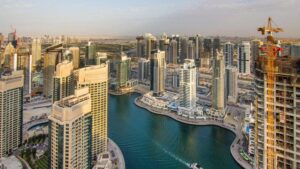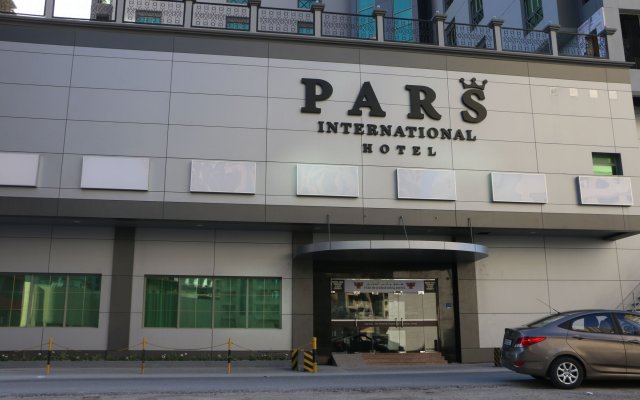Mortgage Basics in Dubai
Understanding Mortgages
A mortgage is a type of home loan that is used to finance the purchase of a property. It is a long-term commitment and typically lasts for 25 years in Dubai. The borrower must pay the lender monthly, including the principal amount and the interest rate.
In Dubai, mortgages are offered by both local and international banks. The interest rate for a mortgage can be either fixed or variable. Fixed-rate mortgages have a set interest rate for the entire loan duration, while variable-rate mortgages have an interest rate that can fluctuate over time.
Types of Mortgages Available
Dubai offers several types of mortgages to potential homeowners. Some of the most common types of mortgages include:
- Off-set Mortgage
- Investment Mortgage
- Non-resident Mortgage
- Fixed-Rate Mortgage
- Variable-Rate Mortgage
Off-set mortgages allow the borrower to offset the interest on their mortgage against their savings. Investment mortgages are used to finance a property intended to be rented out. Non-resident mortgages are designed for those who do not have a UAE residency visa.
Fixed-rate mortgages have a set interest rate for the entire loan duration, while variable-rate mortgages have an interest rate that can fluctuate over time. The interest rate for a mortgage in Dubai typically begins at 3.99% for five years, 3.89% for three years, and 2.75% for one year. However, these rates can change at any time and may be higher or lower at the time of the mortgage application/approval.
When applying for a mortgage in Dubai, the borrower must meet specific criteria, including being over 21 years old, having a valid UAE residency visa, and providing proof of income. A mortgage’s terms are typically set for 25 years, and the loan must be paid back before the borrower is 70.
Mortgage payments in Dubai are capped at 50% of the borrower’s total anticipated earnings for the next seven years.
Overall, understanding the basics of mortgages in Dubai is essential for anyone looking to purchase a property in the city. By researching the different types of mortgages available and understanding the criteria for qualification, potential homeowners can decide which type of mortgage is right for them.
Eligibility and Requirements
Eligibility for Residents
Residents of Dubai are eligible to apply for a 25-year mortgage if they meet specific criteria. The applicant must be at least 21 and have a valid UAE residency visa. The applicant must also have a stable income source to meet their monthly mortgage payments.
Eligibility for Non-Residents
Non-residents are also eligible to apply for a 25-year mortgage in Dubai. The qualifying requirements, however, could change according to the bank or lender. Generally, non-residents must have a valid passport and a UAE residency visa. They must also provide proof of income and employment verification.
Documentation Needed
Applicants must provide specific documentation to apply for a 25-year mortgage in Dubai. These include a valid passport, residency visa, salary certificate, and bank statements. The bank or lender may require additional documentation, such as credit scores and identification documents.
Applicants must remember that the eligibility criteria and documentation requirements differ from one bank or lender to another. Therefore, it is recommended that applicants check with the bank or lender for specific information before applying for a 25-year mortgage in Dubai.
Financial Considerations
When considering a 25-year mortgage in Dubai, there are several financial considerations that potential homeowners should keep in mind. These include determining affordability, understanding down payments, and additional fees and costs.
Determining Affordability
Before applying for a mortgage, it is essential to determine affordability. This involves calculating the monthly mortgage payments and ensuring they fit within the borrower’s budget. The borrower should consider other financial obligations like car loans or credit card debt.
Borrowers can use online mortgage calculators or consult a mortgage advisor to determine affordability. It is important to note that the maximum mortgage you can obtain in Dubai is generally capped at seven times your annual salary. Additionally, your total monthly debt repayments, encompassing your future mortgage payment, should be at most 50% of your salary.
Understanding Down Payments
When purchasing a property in Dubai, a down payment is required. The down payment is typically 25% of the property’s value for expats and 20% for UAE nationals. This means that if the property costs AED 1 million, the down payment for an expat would be AED 250,000.
It is important to note that the down payment can be paid in installments, with the first installment due upon signing the sales and purchase agreement. The remaining installments are typically due throughout the construction period.
Additional Fees and Costs
In addition to the down payment, several other fees and costs are associated with obtaining a mortgage in Dubai. These include processing fees, mortgage registration fees, and property valuation fees.
The processing fee is typically 1% of the loan amount, while the mortgage registration fee is 0.25%. Property valuation fees can vary depending on the property and the valuation company used.
Potential homeowners must consider these additional fees and costs when determining affordability and budgeting for their new home.

Property and Investment in Dubai
Dubai is a city that has been attracting investors from all over the world for many years. With its thriving economy, strategic location, and attractive lifestyle, the city is a hub for business, tourism, and real estate investment.
Choosing the Right Property
Choosing the right property in Dubai is a critical decision that requires careful consideration. The Dubai property market offers many properties, including apartments, villas, townhouses, and commercial properties. Each property type has unique features and benefits, making choosing the right one that suits your investment goals essential.
When choosing a property, investors must consider several factors, such as location, size, price, and potential rental income. The property’s location is crucial, as it determines its value and potential rental income. The size of the property also matters, as more significant properties tend to offer better rental income and capital appreciation.
Investment Opportunities
Dubai’s real estate market offers several investment opportunities for investors in the city’s property market. The city’s freehold areas are open to foreign investors, allowing them to buy, sell or lease their property.
Investors looking to invest in Dubai’s property market can consider several investment options, such as buying an investment property, buying off-plan properties, or investing in real estate funds. Selecting the best investment choice for your goals is crucial since each has distinct characteristics and advantages.
Investing in an investment property can provide investors with a steady rental income and capital appreciation. Buying off-plan properties can offer investors a discount on the property’s price and a potentially high return on investment. Investing in real estate funds can provide investors with an impressive portfolio of properties and a steady income stream.
In conclusion, Dubai’s property market offers several investment opportunities for investors seeking investments in the city’s real estate market. Choosing the right property and investment option is critical to achieving your goals.
Navigating the Mortgage Process
Navigating the mortgage process in Dubai can be complex, but careful planning and preparation can be smooth and straightforward. Here are the key steps to follow when looking to secure a 25-year mortgage in Dubai:
Finding a Lender
The first step in securing a mortgage is finding a lender with the right type of mortgage product that suits your needs. There are several banks and mortgage providers in Dubai, each with policies and requirements. Researching and comparing the options available is essential to find the best fit for you.
Mortgage Application Process
Once you have found a lender, the next step is to complete the mortgage application process. This typically involves providing documentation such as proof of income, bank statements, and identification documents. The lender also must conduct a credit check and assess your eligibility for the mortgage product you have applied for.
Finalizing the Mortgage
After completing the application process, the lender will offer you a mortgage. It is essential to carefully keep an eye on the terms and conditions of the offer before accepting it. Once you have received the offer, the lender will finalize the mortgage and provide you with the funds to purchase your property.
Getting a 25-year mortgage in Dubai can be complex, but it can be a quick and successful process with the proper preparation and guidance from a trusted lender or broker such as eMortgage.

Legal and Regulatory Framework
Understanding UAE Mortgage Law
The UAE Central Bank governs the UAE’s legal framework for mortgages. The Central Bank has established regulations for the country’s mortgage lending rules. These regulations cover everything from the maximum loan-to-value ratio to the maximum mortgage term.
The maximum age restriction of a borrower at the date of the last loan repayment due is 65 years for non-UAE nationals and 70 years for UAE citizens (or 70 years if self-employed), according to rules that generally establish a maximum duration of 25 years for mortgages. The regulations also stipulate that a mortgage’s maximum loan-to-value ratio (LTV) is 80% for UAE nationals and 75% for non-UAE nationals.
Compliance and Regulations
To comply with the regulations, mortgage lenders in Dubai must ensure that they meet the legal requirements set out by the Central Bank. This includes verifying the borrower’s income and employment status and ensuring the mortgaged property is valued correctly.
Mortgage lenders must also ensure that they comply with the regulations regarding the maximum term of a mortgage and the maximum age of a borrower, starting from the last repayment due on the loan. Additionally, mortgage lenders must ensure they stay within the maximum loan-to-value ratio set out by the Central Bank.
Overall, the legal and regulatory framework for mortgages in Dubai is designed to protect both borrowers and lenders. By ensuring that mortgage lenders comply with the regulations, the Central Bank can maintain stability in the mortgage market and protect consumers from unfair lending practices.
Comparing Mortgage Offers
When looking for a 25-year mortgage in Dubai, comparing offers from different lenders is crucial for finding the best deal. Here are some factors to consider when comparing mortgage offers:
Fixed-Rate vs. Variable-Rate Mortgages
When comparing mortgage offers, one of the first decisions is choosing a fixed-rate or variable-rate mortgage. A fixed-rate mortgage has a set interest rate that does not change over the life of the loan. As a result, monthly payments may become more steady and predictable. A variable-rate mortgage, on the other hand, has an interest rate that is subject to change over time, which might affect monthly payments. However, variable-rate mortgages may offer lower interest rates initially, which can save money in the short term.
Evaluating Lender Terms
When evaluating mortgage offers, looking beyond the interest rate and considering other terms the lender offers is essential. For example, the loan-to-value (LTV) ratio is a crucial factor to consider. This ratio displays the loan amount relative to the property’s appraised value. Better terms and a cheaper loan rate follow from a lower LTV ratio.
Loan tenure is another critical factor. Most mortgages in Dubai have a maximum tenure of 25 years, but some lenders may offer shorter or longer terms. It is necessary to assess the impact of the loan tenure on monthly payments and overall affordability.
In conclusion, when comparing mortgage offers for a 25-year mortgage in Dubai, it is essential to consider factors such as fixed-rate vs variable-rate mortgages, LTV ratios, and loan tenure. By carefully evaluating lender terms and comparing multiple offers, borrowers can find the best deal for their needs and budget.
Additional Services and Considerations
Insurance Requirements
When taking out a 25-year mortgage in Dubai, it is essential to consider the insurance requirements that come with it. Most banks in Dubai will require borrowers to have life insurance to cover the mortgage amount in case of death. This is to ensure that the bank can recover the loan’s outstanding amount in the event of the borrower’s death. It is important to note that life insurance costs depend on the borrower’s age, health, and loan amount.
In addition to life insurance, some banks may require borrowers to have property insurance to cover any damage or loss to the property. This insurance type is for natural disasters, fire, theft, and other unforeseen events. It is essential to check with your bank to see what insurance requirements they have for their mortgage products.
Working with Brokers
When looking for a 25-year mortgage in Dubai, borrowers may choose to work with a broker to help them find the best deal. Brokers can provide valuable advice and assistance throughout the mortgage process, including assisting borrowers to find the best interest rates and negotiating with banks.
It is important to note that brokers may charge a fee for their services, which may be different depending on the broker and the services provided. Borrowers should also be aware that some brokers may only work with specific banks or lenders, which may limit their options.
Borrowers should ensure they are working with a reputable and licensed broker when working with a broker. They should also ask about any fees or charges upfront and read the terms and conditions of any agreements carefully before signing.
Overall, working with a broker can be a helpful way for borrowers to find the best mortgage deal for their needs, but it is essential to do research and due diligence before choosing a broker to work with.
In conclusion, when considering a 25-year mortgage in Dubai, borrowers should know the insurance requirements and consider working with a broker to help them find the best deal. They should also be prepared to pay a valuation fee to appraise the property and provide the bank with proof of income and other documentation.
Special Cases
Non-Resident Mortgages
Foreign residents looking to purchase property in Dubai can apply for non-resident mortgages. However, banks in Dubai have strict eligibility criteria for non-resident mortgages. To be eligible, applicants must be salaried or self-employed individuals. Additionally, some banks have age restrictions for non-resident applicants seeking a mortgage in Dubai. For example, ADCB requires non-resident applicants to be above the age of 21 years to apply for a home loan.
Non-resident mortgages in Dubai typically have higher interest rates compared to resident mortgages. Nonresident mortgage interest rates can range from 4% to 8% on the applicant’s eligibility. Additionally, non-resident mortgages in Dubai usually require a higher down payment. It ranges from 25% to 40% of the property value.
Commercial Mortgages
Non-resident investors looking to purchase commercial properties in Dubai can apply for commercial mortgages. Commercial mortgages in Dubai are similar to non-resident mortgages but have different eligibility criteria and interest rates.
To be eligible for a commercial mortgage in Dubai, the applicant must be a non-resident investor looking to purchase a commercial property in Dubai. Additionally, the applicant must have a good credit history and a steady income source.
Commercial mortgages in Dubai usually have higher interest rates compared to resident mortgages. The interest rates for commercial mortgages can range from 5% to 10%, depending on the bank and the applicant’s eligibility. Commercial mortgages in Dubai usually require a higher down payment, ranging from 30% to 50% of the property value.
Overall, non-resident and commercial mortgages in Dubai have different eligibility criteria and interest rates than resident mortgages. Foreign residents and non-resident investors need to research and compare various mortgage options before applying for a mortgage in Dubai.

Living in Dubai
Benefits of Homeownership
Dubai offers a luxurious lifestyle to those who live in the city, and owning a home in Dubai can provide numerous benefits. One of the main benefits of homeownership is the sense of stability it provides. Owning a family home means you have a place to call your own and can make it your own. You can decorate it to your liking and make it a comfortable and inviting space for your family.
Another benefit of owning a home in Dubai is that it can be an excellent long-term investment. Property values in Dubai have been steadily increasing, and owning a home can be an excellent way to build equity over time. Owning a home also provides tax benefits, including removing mortgage interest and property taxes from your income taxes.
Comparing Renting vs Buying
When deciding whether to rent or buy a home in Dubai, there are several factors to consider. Renting can be a good option for those new to the city who want to get a feel for the different neighborhoods before committing to a specific area. Renting can also be a good option for those not planning to stay in Dubai long-term.
However, buying a home in Dubai can provide several advantages over renting. For one, owning a home can give stability and security. You don’t have to think about the possibility of your landlord raising the rent or not renewing your lease. In addition, owning a home can provide more flexibility to make changes to the property, such as renovations or adding a swimming pool.
Dubai MLS
Dubai MLS is the essential navigator for real estate professionals, directing them through emerging brokerages, cultivating crucial connections with potential clients, and expanding their professional horizons. Dubai MLS becomes the bedrock of success within this vast array of opportunities. Embark on a journey through its diverse services and carve your path to triumph.

Frequently Asked Questions
What are the eligibility criteria for non-residents to obtain a mortgage in Dubai?
Non-residents seeking a mortgage in Dubai must have a valid UAE residence visa, be over 21 years old, and provide proof of income. However, eligibility criteria can vary between banks and lenders. It is recommended that you check with the specific lender regarding their requirements.
How do I calculate my potential mortgage payments in Dubai?
One can use a mortgage calculator tool most banks and lenders provide to calculate potential mortgage payments in Dubai. The tool requires input on loan amount, interest rate, and loan tenure. It is important to note that the interest rate can vary based on the type of mortgage and the lender.
What is the minimum salary required to qualify for a mortgage in Dubai?
The minimum salary for a mortgage can vary between banks and lenders. However, it is generally recommended to have a monthly salary that is not lower than AED 15,000 to be eligible for a mortgage.
What are the current mortgage interest rates in Dubai?
Mortgage interest rates in Dubai can vary based on the lender, type of mortgage, and other factors. However, as of April 2024, mortgage rates typically begin at 3.99% for five years, 3.89% for three years, and 2.75% for one year. It is important to note that these rates are subject to change at any time.
What is the maximum mortgage term available to residents in the UAE?
The maximum mortgage term available to residents in the UAE can vary between banks and lenders. However, as of April 2024, the maximum mortgage term is 25 years. It is important to note that the maximum term can be affected by the applicant’s age, with the maximum age typically being 65 years.
How does one’s employment status affect mortgage eligibility in Dubai?
One’s employment status can affect mortgage eligibility in Dubai. For example, self-employed individuals may have different eligibility requirements than those employed by a company. Checking with the specific lender for their eligibility requirements based on employment status is recommended.













